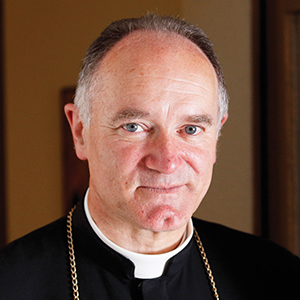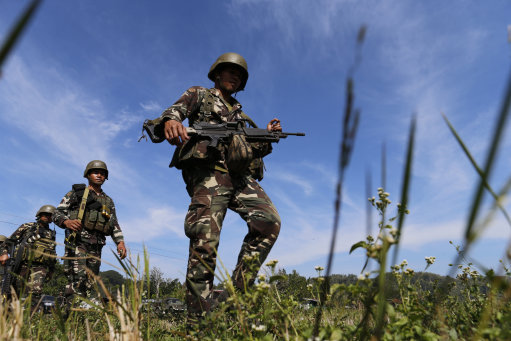A Catholic archbishop has given his blessing to President Rodrigo Duterte’s declaration of martial law in a region of the Philippines as long as human rights are protected.
Archbishop Martin Jumoad of Ozamiz said that the government needs to step up its efforts to restore peace and order to the besieged city of Marawi where Islamic State-linked militant groups have torched buildings, hoisted Islamic State flags, seized 14 Catholic hostages and beheaded a member of the police.
The archbishop warned Marawi’s residents to be careful and to “cooperate” with the military, the news service of the Philippine Catholic Bishops Conference (CBCP), reports.
“If the people will not cooperate with the armed forces, things could get more complicated,” Jumoad said.
“I am for the imposition of martial law provided a mechanism has to be established so that human rights will not be violated,” he continued.
Military spokesman Colonel Edgard Arevalo said yesterday (24 May) that 13 militants have been killed in Marawi, and that five government soldiers have died and 31 others were wounded. Other officials have said a security guard and two policemen were also killed, including the beheaded police chief. Thousands of civilians are reported to have fled the city.
In reaction to the deadly clashes, Duterte has declared the city and the entire Mindanao region under martial law for 60 days.
Speaking at a news conference in Manila on Wednesday (24 May), he added that he may impose martial law nationwide if he believes the Islamist group has taken a foothold.
Under the 1987 constitution, the president has the ability to place the country under martial law, though Congress can revoke the proclamation. The period should not last more than two months.
A group of Muslim lawyers said they planned to challenge the imposition of martial law in court, CNN Philippines reported.
Martial law will allow Duterte to use the armed forces to carry out arrests, searches and detentions more rapidly.
Human rights groups have expressed fears that martial law powers could further embolden Duterte, who is accused of allowing the extrajudicial killings of thousands of people in his crackdown on illegal drugs.
The Phillippines endured 14 years of martial law under former dictator Ferdinand Marcos, who was ousted in a peaceful revolution in 1986. Perceived opponents of Marcos were subjected to human rights violations, including imprisonment and torture. Extrajudicial killings carried out by Marcos’ secret police were common.
Many fear a repeat of that period under Duterte. The president has embraced the comparison.
"It would not be any different from what President Marcos did," Duterte said in his video message on 23 May, referring to the current martial law ruling. "I'd be harsh," he added.
PICTURE: Filipino troops deployed in the fight against Islamist militants




 Loading ...
Loading ...